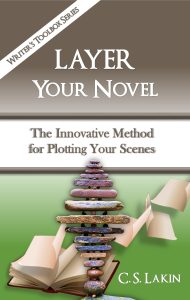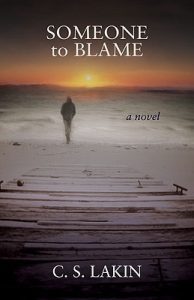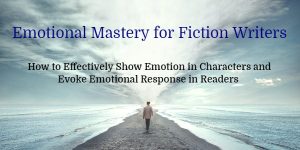Evoking Emotions in Readers in a Masterful Way – Part 4
We’ve been looking at the way thoughts lead to emotions, and how getting into our characters’ thoughts can be a powerful tool to evoking emotion in our readers. Which is our prime objective as fiction writers.
Part of the natural behavior humans engage in is processing. Something happens, we process it. We do this every waking moment. I’ve written numerous posts on this much-overlooked natural behavior that our characters, as well, need to engage in.
At any given moment in your scene, a character is either acting, reacting, processing, making a new decision, or initiating a new action. This whole cycle could take place, at times, over a few seconds, or it could take hours. It depends.
On what? On what is happening. Fast-action scenes in high-octane thrillers might have characters going through this cycle repeatedly every few seconds. A killer runs through a crowd. The hero follows, sees the killer run into traffic, then reacts. Quickly, he decides to go around the block (after processing his choices and the best chance he has of catching the bad guy), then rushes off (new action).
At other times, those down times in a thriller, your character may be able to kick back and spend some minutes processing. Maybe even days mulling over a situation and trying to figure a way out or around (while lots of other action is continuing to play out in the novel).
It’s all about genre (which is why I put together my extensive online course on targeting genre!). It’s so important—if you want to become a masterful writer in your genre—to master your genre by studying it carefully.
And that includes analyzing how much and in what way characters process the actions that occur.
Genres like women’s fiction, some literary fiction, and relational dramas all have much more processing time than a suspense thriller. A murder mystery/detective fiction will have a lot of processing as well, but it is often very different in style and tone than the processing found in a heavy relationship drama.
The Dark Night Moment
One kind of processing our characters can do (and which is often terrific to do during that “dark night of the soul” section right before the climax) is replay something that happened in their past. Something important, haunting, and impacting to the plot of the novel.
 I love putting a flashback (usually the only one in my entire novel, if I have one at all) in at this moment in the story. Why? Because this section of the novel is where the character must face all his fears, issues, shortcomings, failures, crimes, evils—you name it. It’s when he has to muster up every ounce of courage to take the hardest, next step. And he can’t do it until he faces the truth about himself.
I love putting a flashback (usually the only one in my entire novel, if I have one at all) in at this moment in the story. Why? Because this section of the novel is where the character must face all his fears, issues, shortcomings, failures, crimes, evils—you name it. It’s when he has to muster up every ounce of courage to take the hardest, next step. And he can’t do it until he faces the truth about himself.
Sometimes that truth is about the lie he believes about himself or the world. The lie he’s believed for years. Sometimes that truth is about his wound. The wound that he’s buried deep and has refused to face but has festered now to the point that he can no longer go on without facing it.
These moments in a novel are powerful. They are often the most impacting scene in a novel. The scene readers talk about and remember for years to come. They are my favorite scenes to write. (If you aren’t clear on what your essential scenes are and where they go, get Layer Your Novel. It’s crucial to understand the five turning points and these ten key scenes!)
Take a look at this moment in my relational drama Someone to Blame. This is one of those dark-night moments. In this novel, I have two protagonists—a husband, Matt, and his wife, Irene. Matt’s great wound is that he knows in his heart of hearts it was his callous actions toward his teenage son Daniel that caused his son to kill himself. He’s been blaming everyone else ever since the fateful day (you can guess what the theme of my novel is, right?). And because of that, he’s been in heavy emotional pain. The only way Matt will see his way to freedom from this pain is to go through it. To face it down, honestly, and own it.
The scene opens with Matt at a neighbor’s house, where a group of angry men have gathered to plot a murder. When Matt realizes what they’re planning, he is shocked and wants to leave. But it’s not really the outrage over what these men are planning that disturbs him so deeply. It’s the way the men talk about Billy Thurber—a young man who is very much like his dead son.
Matt then begins to process the event in the past, facing it head-on. And it’s his thoughts that lead him to his emotions, which eventually lead him to the only exit out of the firestorm raging in his soul.
The more Matt listened, the more surreal the discussion became. Soon, he was no longer hearing the men throwing around their ideas. He heard someone call Thurber “good-for-nothing.” The words echoed in his head, causing an ache in his gut. Thurber’s face intruded in his thoughts, hard-set and defiant.
Matt stood and the room spun. He grabbed the back of the chair and steadied himself. The air thickened and suddenly the mass of bodies crowded him, making him claustrophobic. Sweat dripped down his forehead and stung his eyes.
By the time he got to the door, the voices stilled. All eyes were upon him.
“Where are you going, Moore?” Hubble asked. “You can’t leave now. We need your help.”
Matt looked in the faces of men intent on murder. “I can’t do this.”
The big muscular man put his hand on the door, making sure it stayed closed. “Yeah, if you leave, who’s to say you won’t go fink to the sheriff?”
The older man spoke in a threatening tone. “You better come with us. Or meet us down at the pier.”
Matt looked in the face of the man blocking his exit. “Let me leave.”
The man turned and questioned Hubble with his eyes. Hubble scowled a moment, then waved his hand in dismissal. “Aw, let him go if he wants to.” His eyes locked on Matt’s. “I don’t get it, Moore. You of all people should want to see that good-for-nothing punk get his just deserts.”
Matt’s heart raced as he stepped out into the fresh, cold air. Ground fog hovered around the parking lot and muffled the sounds in the room behind him. He heard the door click shut, and it made him jump.
He got into the cab of his truck and noticed his hands trembled. Mindlessly, he drove slowly north toward home, but Hubble’s words replayed over and over, like a skipping record.
He was back in Running Springs, on the front porch. On a night like this—foggy, misty, cold. Normally, June evenings were balmy and mild, but a front had whisked down from Alaska and temperatures dropped. Early that evening, Irene mentioned how they’d probably need to bring sweaters for the graduation party, and for taking group photos outside the auditorium. Matt sat on the porch swing with a heavy coat on, checking his watch from time to time, getting more and more worked up.
This was the last straw. Daniel was supposed to come home two hours ago, and Irene and Casey had gone to bed. Matt told Irene he’d stay up and wait, to make sure Daniel was okay. But that wasn’t the reason Matt stayed up. He had reached the end of his patience.
By the time Daniel showed up, dropped off by a carload of rowdy teenage boys, Matt’s fury rumbled like a volcano threatening to erupt. He had spent years containing his anger and frustration, but no longer. Just like Thurber, Daniel had pushed everyone too far. And he’d gotten away with each overstep with just a little slap on the hand. Fat lot of good that did to alter his behavior. People like Thurber—like Daniel—needed to run up against a brick wall of authority. An impenetrable wall, one that didn’t budge or fall to pieces at the first sign of attack. Matt made himself into that wall.
 Just seeing Daniel laughing in that clueless manner—not caring that he was past his curfew and caused his parents worry—made Matt want to wring his son’s neck. All these years he had never laid a finger on any of his children. Never. But that night he snapped. When Daniel came up onto the porch, clearly high on something, Matt blocked his way to the door and slapped him hard in the face.
Just seeing Daniel laughing in that clueless manner—not caring that he was past his curfew and caused his parents worry—made Matt want to wring his son’s neck. All these years he had never laid a finger on any of his children. Never. But that night he snapped. When Daniel came up onto the porch, clearly high on something, Matt blocked his way to the door and slapped him hard in the face.
Daniel reeled backward in shock. “Why did you do that?”
“You have to ask?”
Daniel huffed. “What? Because I’m a little late? Can’t you cut me some slack, Dad? We were out celebrating the end of school.”
“I don’t care if it was the end of the world. We have rules in this house, and you’ve broken them too many times. And you didn’t call or answer your cell phone. You know we’ve told you again and again that you have to answer your phone.”
Daniel kicked at the deck railing. “I was at a party, a loud party. No way I’d hear my phone ring.”
“That’s not the point and you know it.” Matt felt anger surge through every pore in his body. He grabbed Daniel’s chin and forced him to face him. “Tomorrow, after graduation, I want you to pack your things and leave this house.”
“What?” Daniel yanked away from his father’s grip. “Where do you expect me to go?”
“I really don’t care. Find some buddy to stay with, get a job, get an apartment. You’re eighteen, for heaven’s sake.”
“And I suppose when Casey’s my age, you’ll throw her out as well?”
Matt read the panic in Daniel’s face, but he didn’t care. He was a solid, unmovable wall. “If she behaves the way you do. But she’s not a good-for-nothing kid like you.”
Daniel cringed as if Matt had struck him on the face again. Matt could tell tears were forming in his eyes, but his son pushed them back with sheer will. He watched a wave of emotion cross Daniel’s face, watched his features harden into a rock to match Matt’s own stern expression.
“Fine. I’ll be out of here by tomorrow night. You’ll be rid of me.”
“Good.” Matt stared him down. “And don’t go crying to your mother, because she won’t change my mind.”
Matt felt water on his face as he drove down the gravel road to his small cottage in Breakers. He touched his cheek and realized he was crying. When he pulled into his driveway, he cut the engine and shut off the headlights, then sat in the dark listening to the pinging of the engine as it cooled down. For a long time he watched rain splatter the windshield, feeling the rip in his heart.
Irene startled him when she opened the passenger door. “Matt, are you all right?” She slid in and shut the door, sidling up to him in the dark.
Matt tried to swat the memory away, but it rushed at him anyway.
Daniel pushing past him and putting his hand on the doorknob.
The way he stopped and turned to Matt, his eyes brimming with pain.
His voice wavering. “You wished it had been me, don’t you? Instead of Jesse—in the accident. That I had died instead.”
Matt didn’t stop to think. He just wanted to lash out and hurt him, to pierce through that concrete casing and make him bleed, the way he had made them all bleed for years.
“You’re right.” He stabbed Daniel with words as sharp as knives. “You should have died instead. Then we would never have had to suffer all this heartache.”
In the cab of the truck, in the quiet of the dark, foggy night, Matt felt a crack, like his heart split in two. He buckled over the steering wheel and sobbed in great gasps, unable to catch his breath.
Irene wrapped her arm around him and leaned her head on his shoulder. “It’s all right, Matt. Just let it out.”
Matt tried to talk in between gasps, searching for breath. “It was my fault, all my fault. How could I have done that to Daniel?”
Irene stroked Matt’s face, wiped tears. He saw she cried too.
“The night before graduation . . . I told him I wished he had died—instead of Jesse.” He broke into a heaving sob. “I can’t believe I told him that.”
“You didn’t mean it, Matt.”
“I did. And then he went and—”
Matt’s door opened and a rush of cold air hit him broadside. Casey put her hand on her dad’s shoulder, her face frantic with worry. “Dad, Mom, what happened? What’s wrong?”
Irene pulled Matt into her arms, cradling him. “It’s okay, honey. We’ll be inside in a minute.” She gave a reassuring nod and Casey backed off, carefully shutting the door. Matt lifted his eyes and watched his daughter go back into the house.
He wiped his face with his sleeve. “Irene, I’m so sorry. So sorry. And I’ve hurt you and Casey so badly.”
“Shush. Just let it go.”
“How will you ever forgive me?” He raised his face to look into her eyes and expected harsh judgment. Instead, he only saw a shared pain, a shared loss.
“Matt, I don’t blame you for Daniel’s death. We’re all to blame—and maybe not to blame. Oh, what’s the point? We can’t go back and change anything, make it different.”
“No, but I can change things now. Stop being so hard on Casey. Criticizing her like I did Daniel. My poor baby—”
More tears gushed out, and Matt felt himself emptying like a river into a great thirsting sea.
Irene spoke softly. “Casey loves you so much—”
“—And I love her too.” His throat clenched in pain. “More than she knows.”
Irene patted his arm. “Well, then, tell her. She needs to hear it from your own lips.”
Matt turned and looked at Irene. Love poured from her eyes, love he didn’t deserve.
She kissed his lips and wiped his hair off his forehead. “Come, let’s go inside.”
We writers can craft powerful emotional scenes by not only walking our character through a past trauma but showing how that revisiting emotionally impacts him. It’s a combination of telling what happened and replaying the former reaction (in the past) as well as showing the present reaction (the processing in the present of the story) your character experiences.
If you have created a past wound for your protagonist, consider putting in a “replay” moment in that dark moment before the climax. In most transformational journeys in a novel, the character must face his true essence as well as understand what false persona he’s been showing that world (which hasn’t been working for him) in this very scene. Part of coming into his “true essence” is facing his greatest fear (which is usually tied up with the lie he believes because of the wound he’s suffered).
If you haven’t come up with a wound, think about developing one. Not just any wound but one that is specifically chosen to work with your themes and the purpose of your novel. If you need help with this, hire me! This is what I love to do: help writers come up with terrific elements for their stories.
Do you have a memory your character revisits during the dark moment before the climax? Share it in the comments!
Related posts:
Want to master the emotional craft of fiction?
Dive into the online course Emotional Mastery for Fiction Writers!
In this course, you’ll be given tools to show emotions in your characters. You’ll be given techniques to help spark emotional response in your readers. What is going to bring it all together for you is practice. Study and practice. And you’ll have exercises in this course to help you put into practice what you learn.
There are two facets of emotion in fiction: conveying what your character is feeling and evoking emotion in your reader. We’ll look at these two facets separately and in de pth. Yet, they are intrinsically connected.
pth. Yet, they are intrinsically connected.
Emotional mastery requires writers to set up the dynamics of a scene in such a visual, textural way that readers can’t help but feel what they are meant to feel. Understanding that emotional mastery requires a twofold approach—the emotional landscape of both the character and the reader—is the first step.
Want to learn how to become a masterful wielder of emotion in your fiction? Enroll in my new online video course, Emotional Mastery for Fiction Writers.
You’ll get lifetime access to all the videos and more than three dozen downloadable assignments. And with a 30-day money-back guarantee, you have NOTHING to lose by jumping in. Sign up NOW.
This course will challenge you to become an “emotion master.” Are you ready and willing to go on this journey deep into emotional territory? If you want your characters to move your readers, take the plunge!












I actually opened my novel with a flashback – not very far back. But the flashback was also a “flash ahead”, a part of the story that comes much later in the book. I use other flashbacks strategically through the story to reveal bit by bit what has happened throughout my main character’s life. Because it was such an emotional event in the flashback, I believe I will catch the reader’s attention so she will want to read more. The final chapter is another flashback years later which fills in details of the lives who have peopled the story, so the reader isn’t left wondering whatever happened to them as the story moves on with less reference to the lesser characters. I’m not sure if I have explained myself well here, but those who have read my manuscript really love it. I hope this is a good sign for when I publish it.
When you start the novel with a glimpse of a future scene or partial scene, it’s called a frame (a frame structure). I’ve done it in a few of my novels, and it’s something I love if done well in other novels. However, it’s rare when I find a good flashback in a novel that doesn’t bug me due to stopping the action and pulling me back in the past to explain things, most of which I don’t need to know or are kind of boring and are a waste of pages. Flashbacks should be rarely used and only when it’s really the best device to convey both key info and a specific feeling you want to draw from the reader by immersing them in a past moment. Yes, as Victoria says, we use the past to understand the present, but flashbacks are usually not necessary or helpful in novels.
I understand you, Diane. Just like real people, our characters use their past to understand the moment in our stories. Flashbacks are necessary to help the story move forward and keep the reader interested in our story as a whole. Thank you, Susanne, for another informative post.